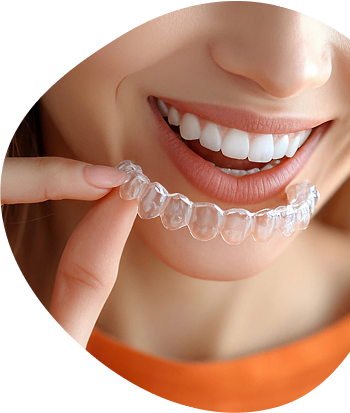Breastfeeding is a personal decision many new mothers make for their new baby. Breast is best, after all, as it helps baby ward off infections and reduces health risks such as SIDS and ear infections. Nursing moms also benefit in phenomenal ways, as it provides them a better opportunity to bond and reduces the risk of developing certain types of cancers. But, breastfeeding also impacts both mom and baby’s oral health in many ways. Want to know how?
In 2017, the Journal of the American Dental Association reported that babies who were breastfed exclusively for the first six months of their life had fewer tooth alignment issues like crossbites and overbites compared to babies who breastfed exclusively for a period less than six months or babies who were bottle fed. The Journal’s report correlated a similar 2015 Pediatrics study.
This study doesn’t guarantee that your baby will not suffer from other oral health concerns. Many teens need braces, and issues such as thumbsucking and pacifier use can also cause problems for babies and toddlers. Each baby and child is different. It’s important that you maintain regular visits with the dentist to reduce any risks of oral health issues. The American Dental Association (ADA) recommends visiting the dentist twice annually for best results.
If you are like many parents, you worry that breastfeeding must stop once baby begins getting teeth, but that is not the case, at least if you don’t want to stop breastfeeding. The American Academy of Pediatrics recommends breastfeeding baby for the first year of life. The World Health Organization, on the other hand, recommends breastfeeding for the first two years of baby’s life. Follow the pattern that you think is best for you and baby when deciding when to stop breastfeeding.
Breastfed babies are less likely to develop baby bottle tooth decay. This occurs when the baby’s teeth are exposed to the sugar-containing drinks inside a bottle for extended periods of time. This is a common condition that babies experience when they’re put to bed with a bottle. It usually affects the upper teeth but the bottom teeth are also at-risk.
Don’t think that your baby won’t develop cavities simply because you breastfeed. It is a common misconception, since breastmilk, like formula, contains sugar. The best way to reduce the risk of cavities is to take care of baby’s teeth from birth. Wash their gums with gauze and start brushing twice per day once teeth come in.
While breastfeeding, double check any medications that you currently take or that you are prescribed to make sure they are safe for baby. There are antibiotics and other medications that won’t hurt baby, but you must inform the doctor/dentist that you are breastfeeding. If you’re unsure if a medication is safe for baby, visit the U.S. National Library of Medicine’s Drugs and Lactation Database online.
Finally, make sure that you take care of yourself when breastfeeding and when you’re not. It’s simple to take care of yourself well ahead of baby’s arrival. Doing so will ensure that your teeth are strong and healthy and do not succumb to the added stress that pregnancy brings. You’ll be accustomed to caring for your teeth during added times of stress on the body, such as during breastfeeding, which reduces the risk of cavities and gum disease. Brush your teeth twice daily, floss the teeth, eat the right foods, and visit the dentist twice per year to maintain the best oral health! Schedule your appointment with us today by clicking here!










.png)


